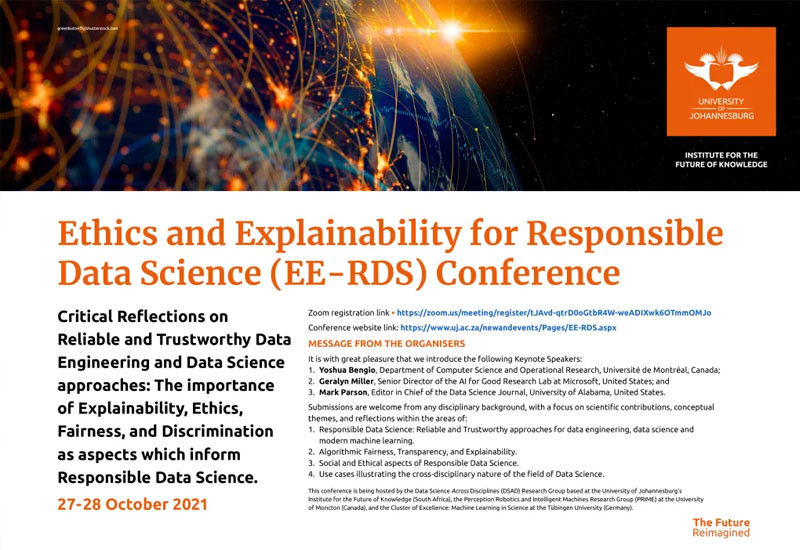Ethics and Explainability for Responsible Data Science (EE-RDS)

Date:
27 October 2021 to 28 October 2021
Location:
Online
Conference hosted by:
- Data Science Across Disciplines (DSAD) Research Group, Institute for the Future of Knowledge, University of Johannesburg;
- Perception Robotics and Intelligent Machines Research Group (PRIME), University of Moncton;
- Sponsorship is being provided by the National Integrated Cyberinfrastructure System (NICIS).
